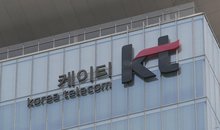South Korea's National Pension Service (NPS), one of the largest pension funds in the world, recently made headlines by purchasing $34 million worth of MicroStrategy shares. This move signals a growing interest in Bitcoin as an alternative asset, even among traditionally conservative investors like government-managed pension funds. But what does this investment signify?
Korea NPS Buys MicroStrategy Stock
According to recent filings, the NPS made a substantial investment in MicroStrategy, a company known for its aggressive Bitcoin acquisition strategy. MicroStrategy, led by CEO Michael Saylor, has become synonymous with corporate Bitcoin adoption, holding more than 150,000 BTC as of 2024. The company has made Bitcoin a core part of its balance sheet strategy, frequently raising capital to acquire more of the digital asset.
By investing in MicroStrategy, NPS gains access to the potential upside of Bitcoin while adhering to traditional equity investment practices. While this is a noteworthy development for the adoption of Bitcoin within institutional portfolios, it also reflects broader trends of diversification in response to economic uncertainties and the declining yields of more traditional assets like bonds.
MicroStrategy’s Bitcoin Playbook for Corporations
MicroStrategy’s approach to Bitcoin is both strategic and pioneering. The company views Bitcoin as a superior store of value compared to cash, particularly in an environment where inflation and currency devaluation are increasing concerns. By holding a significant portion of its reserves in Bitcoin, MicroStrategy believes it can protect its assets while benefiting from the digital asset's long-term appreciation.
The NPS’s investment in MicroStrategy can be seen as an endorsement of this strategy. It suggests that even highly regulated institutional investors are beginning to recognize the role of Bitcoin in a diversified portfolio, especially when it comes to long-term value preservation.
South Korea's Pension Fund Crisis
NPS faces a significant challenge: the rapid depletion of its funds. According to a report by Reuters, the South Korean pension fund is projected to be fully depleted by 2055, a decade earlier than previous estimates. The accelerating depletion is due to an aging population, lower birth rates, and a shrinking workforce—all contributing to a higher ratio of retirees to active contributors.
This looming crisis has triggered discussions about raising the retirement age, increasing contribution rates, or adjusting benefit payouts. However, these measures are politically sensitive and may not be enough to fully address the issue.
Can Bitcoin Help Solve NPS’s challenge?
The NPS’s investment in MicroStrategy marks a fascinating intersection between traditional pension funds and the emerging world of digital assets. Additionally, the NPS holds 229,807 shares of Coinbase (COIN), valued at over $45 million. These moves indicate that even a traditionally conservative fund like the NPS is increasingly open to the idea of leveraging digital assets as part of a diversified investment strategy.
While these investments alone won’t solve the pension fund’s looming crisis, they reflect a willingness to explore innovative solutions like Bitcoin. As South Korea grapples with an aging population and shrinking workforce, incorporating Bitcoin into the NPS portfolio could play a role in enhancing returns and extending the fund’s longevity. Whether Bitcoin can truly address these challenges remains to be seen, but NPS’s growing interest in crypto suggests that this once-radical idea is now a serious consideration in its strategy.





